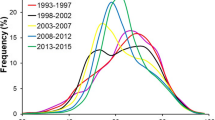Abstract
Hepatocellular carcinoma (HCC) is an extremely diverse and heterogeneous disease and improving patient outcome is a difficult undertaking. While many therapeutic options exist, few have been subjected to rigorous study, so patient benefit is uncertain. Comparative trials need to be performed to determine the value of these and, of course, newer treatments. However, there are numerous challenges to the design and conduct of such studies. While stratification parameters are important in most clinical trials, they are particularly critical when studying HCC. The cancer staging of HCC must reflect prognosis and, therefore, must include parameters of liver disease. This is because the underlying hepatic dysfunction may often determine how long patients survive and confuse the interpretation of anti-HCC treatment trials. Two new staging paradigms—Cancer of the Liver Italian Program (CLIP) and Chinese University Prognostic Index (CUPI)—have been developed, and these need to be validated. The role of the many different treatment options must be determined. However, the diverse nature of presentation of HCC and the proliferation of many routine procedures—such as chemoembolization or radiofrequency ablation—make controlled trials nearly impossible. Even drug development is a special circumstance, because HCC patients with underlying liver disease may need different dosing regimens and schedules compared to other cancer patients. This makes clinical trial design more cumbersome and the risks of participating in clinical trials for HCC greater. The immense unique challenges of this disease make it imperative for investigators to identify the most promising agents for HCC. At the same time, all patients with HCC should, if possible, be treated on well-designed clinical trials.
Similar content being viewed by others
References
Benjamin RS, Wiernik PH, Bachur NR (1974) Adriamycin chemotherapy—efficacy, safety, and pharmacologic basis of an intermittent single high-dosage schedule. Cancer 33:19
Bergsland EK (2001) Molecular mechanisms underlying the development of hepatocellular carcinoma. Semin Oncol 28:521
Cancer of the Liver Italian Program Investigators (1998) A new prognostic system for hepatocellular carcinoma: a retrospective study of 435 patients. Hepatology 28:751
Cancer of the Liver Italian Program Investigators (2000) Prospective validation of the CLIP score: a new prognostic system for patients with cirrhosis and hepatocellular carcinoma. Hepatology 31:840
Cha CH, Ruo L, Fong Y, Jarnagin WR, Shia J, Blumgart LH, DeMatteo RP (2003) Resection of hepatocellular carcinoma in patients otherwise eligible for transplantation. Ann Surg 238:315
Chang MH, Chen CJ, Lai MS, Hsu HM, Wu TC, Kong MS, Liang DC, Shau WY, Chen DS (1997) Universal hepatitis B vaccination in Taiwan and the incidence of hepatocellular carcinoma in children. Taiwan Childhood Hepatoma Study Group. N Engl J Med 336:1855
Coakley FV, Schwartz LH (2001) Imaging of hepatocellular carcinoma: a practical approach. Semin Oncol 28:460
El-Serag HB, Mason AC (1999) Rising incidence of hepatocellular carcinoma in the United States. N Engl J Med 340:745
Falkson G, MacIntyre JM, Moertel CG, Johnson LA, Scherman RC (1984) Primary liver cancer: an Eastern Cooperative Oncology Group Trial. Cancer 54:970
Groupe d’Etude et de Traitement du Carcinome Hepatocellulaire (1995) A comparison of lipiodol chemoembolization and conservative treatment for unresectable hepatocellular carcinoma. N Engl J Med 332:1256
Johnson PJ, Williams R, Thomas H, Sherlock S, Murray-Lyon IM (1978) Induction of remission in hepatocellular carcinoma with doxorubicin. Lancet 1:1006
Leung TW, Tang AM, Zee B, Lau WY, Lai PB, Leung KL, Lau JT, Yu SC, Johnson PJ (2002) Construction of the Chinese University Prognostic Index for hepatocellular carcinoma and comparison with the TNM staging system, the Okuda staging system, and the Cancer of the Liver Italian Program staging system. Cancer 94:1760
Little SA, Fong Y (2001) Hepatocellular carcinoma: current surgical management. Semin Oncol 28:474
Llovet JM, Real MI, Montana X, Planas R, Coll S, Aponte J, Ayuso C, Sala M, Muchart J, Sola R, Rodes J, Bruix J; Barcelona Liver Cancer Group (2002) Arterial embolisation or chemoembolisation versus symptomatic treatment in patients with unresectable hepatocellular carcinoma: a randomised controlled trial. Lancet 359:1734
Okuda K, Ohtsuki T, Obata H, Tomimatsu M, Okazaki N, Hasegawa H, Nakajima Y, Ohnishi K (1985) Natural history of hepatocellular carcinoma and prognosis in relation to treatment. Study of 850 patients. Cancer 56:918
Otto G, Heuschen U, Hofmann WJ, Krumm G, Hinz U, Herfarth C (1998) Survival and recurrence after liver transplantation versus liver resection for hepatocellular carcinoma: a retrospective analysis. Ann Surg 227:424
Pugh RNH, Murray-Lyon IM, Dawson JL, Pietroni MC, Williams R (1973) Transection of the oesophagus for bleeding oesophageal varices. Br J Surg 60:646
Sherman M (2001) Surveillance for hepatocellular carcinoma. Semin Oncol 28:450
Tan CK, Law NM, Ng HS, Machin D (2003) Simple clinical prognostic model for hepatocellular carcinoma in developing countries and its validation. J Clin Oncol 21:2294
Venook AP, Egorin MJ, Rosner GL, Brown TD, Jahan TM, Batist G, Hohl R, Budman D, Ratain MJ, Kearns CM, Schilsky RL (1998) Phase I and pharmacokinetic trial of paclitaxel in patients with hepatic dysfunction: Cancer and Leukemia Group B 9264. J Clin Oncol 16:1811
Venook AP, Egorin MJ, Rosner GL, Hollis D, Mani S, Hawkins M, Byrd J, Hohl R, Budman D, Merepol NJ, Ratain MJ (2000) Phase I and pharmacokinetic trial of gemcitabine in patients with hepatic or renal dysfunction: Cancer and Leukemia Group B 9565. J Clin Oncol 18:2780
Author information
Authors and Affiliations
Corresponding author
Additional information
This work was presented at the 19th Bristol-Myers Squibb Nagoya International Cancer Treatment Symposium, “State of the Arts for Digestive Organs”, 14–15 November 2003, Nagoya, Japan.
Rights and permissions
About this article
Cite this article
Venook, A.P. Key research issues in the management of hepatocellular carcinoma. Cancer Chemother Pharmacol 54 (Suppl 1), S87–S90 (2004). https://doi.org/10.1007/s00280-004-0893-z
Published:
Issue Date:
DOI: https://doi.org/10.1007/s00280-004-0893-z




